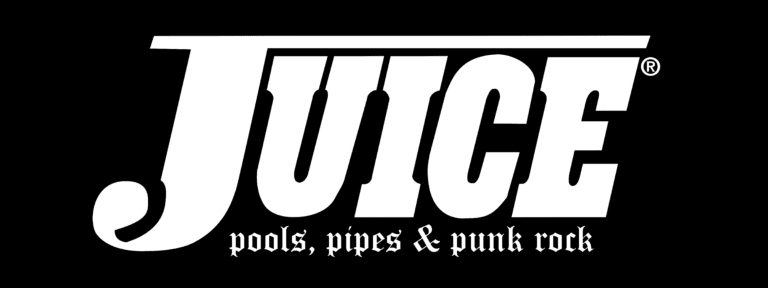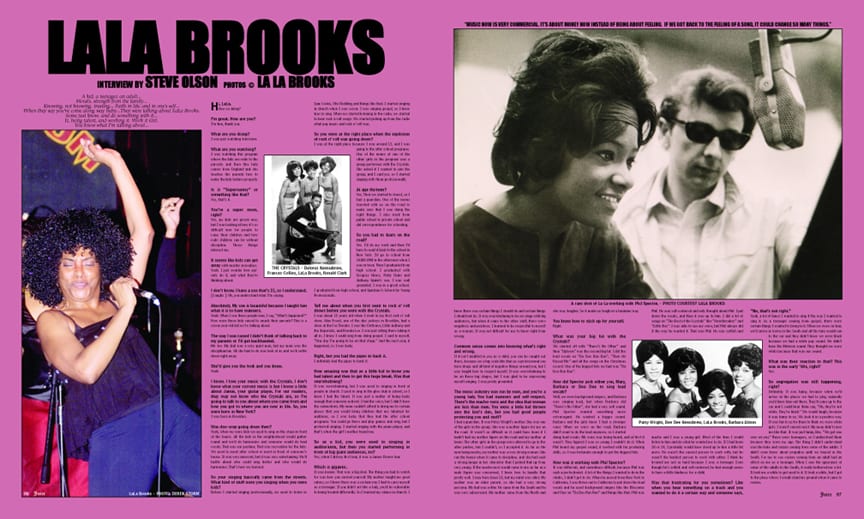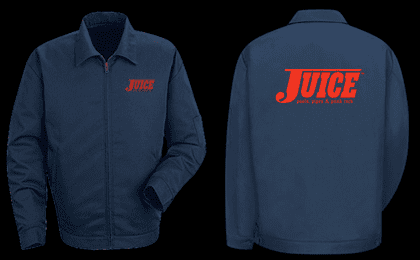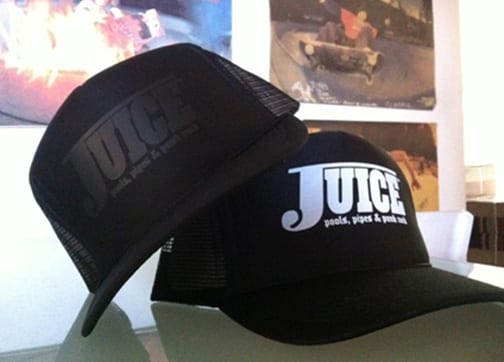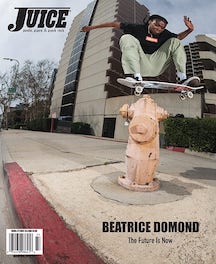INTERVIEW BY STEVE OLSON
INTRODUCTION BY STEVE OLSON
PHOTOS COURTESY OF LA LA BROOKS
A kid, a teenager, an adult… Morals, strength from the family… Knowing, not knowing, trusting… Faith in life, and in one’s self… When they say you’ve come along way baby…They were talking about LaLa Brooks. Some just know, and do something with it… It, being talent, and working it. Work it Girl. You know what I’m talking about…
“MUSIC NOW IS VERY COMMERCIAL. IT’S ABOUT MONEY NOW INSTEAD OF BEING ABOUT FEELING. IF WE GOT BACK TO THE FEELING OF A SONG. IT COULD CHANGE SO MANY THINGS.”
Hi, LaLa.
How ya doing?
I’m great. How are you?
I’m fine, thank you.
What are you doing?
I was just watching television.
What are you watching?
I was watching this program where the kids are rude to the parents and then this lady comes from England and she teaches the parents how to make the kids behave properly.
Is it ‘Supernanny’ or something like that?
Yes, that’s it.
You’re a super mom, right?
Yes, my kids are grown now, but I was looking at how it’s so difficult now for people to raise their children and how rude children can be without discipline. Those things interest me.
It seems like kids can get away with murder nowadays.
Yeah. I just wonder how parents do it, and what they’re thinking about.
I don’t know. I have a son that’s 21, so I understand.
[Laughs.] Oh, you understand what I’m saying.
Absolutely. My son is beautiful because I taught him what it is to have manners.
Yeah. When I see these people now, I say, ‘What’s happened?’ How were these kids raised to smack their parents? This is a seven-year-old kid we’re talking about.
The way I was raised I didn’t think of talking back to my parents or I’d get backhanded.
Me too. My dad was a very quiet man, but my mom was the disciplinarian. All she had to do was look at us and we’d settle down right away.
She’d give you the look and you knew.
Yeah.
I know. I love your music with the Crystals. I don’t know what your current music is but I know a little about Jamie, your guitar player. For our readers, they may not know who the Crystals are, so I’m going to talk to you about where you came from and how you got to where you are now in life. So, you were born in New York?
I was born in Brooklyn.
Was doo-wop going down then?
Yeah, when we were kids we used to sing on the steps in front of the house. All the kids in the neighborhood would gather round and we’d do harmonies and someone would do lead vocals. That was our pastime. That was recreation for the kids. We used to meet after school or meet in front of someone’s house. It was very innocent, but it was very entertaining. We’d battle about who could sing better and who would do harmonies. That’s how we learned.
So your singing basically came from the streets. What kind of stuff were you singing when you were kids?
Before I started singing professionally, we used to listen to Sam Cooke, Otis Redding and things like that. I started singing in church when I was seven. I was singing gospel, so I knew how to sing. When we started listening to the radio, we started to hear rock n roll songs. We started picking up from the radio what pop music and rock n’ roll was.
So you were at the right place when the explosion of rock n’ roll was going down?
I was at the right place because I was around 13, and I was going to the after school programs. One of the moms of one of the other girls in the program was a group performer with the Crystals. She asked if I wanted to join the group, and I said yes, so I started singing with them professionally.
At age thirteen?
Yes. Then we started to travel, so I had a guardian. One of the moms traveled with us on the road to make sure that I was doing the right things. I also went from public school to private school and did correspondence for schooling.
So you had to learn on the road?
Yes. I’d do my work and then I’d have to send it back to the school in New York. I’d go to school from 10AM-1PM in the afternoon when I was in town. Then I graduated from high school. I graduated with Gregory Hines, Patty Duke and Anthony Quinn’s son. I was well grounded. I was in a great school. I graduated from high school, and Quintano’s School for Young Professionals.
Tell me about when you first went to rock n’ roll shows before you were with the Crystals.
I was about 12 years old when I went to my first rock n’ roll show. Alan Freed, one of the disc jockeys in Brooklyn, had a show at the Fox Theatre. I saw the Cleftones, Little Anthony and the Imperials, and Brenda Lee. I was just sitting there taking it all in. I knew I could sing from doing gospel. I said to myself, ‘One day I’m going to be on that stage.’ And the next year, it happened, so I was lucky.
Right, but you had the pipes to back it.
I definitely had the pipes to back it.
How amazing was that as a little kid to know you had talent and then to get this huge break. Was that overwhelming?
It was overwhelming, but I was used to singing in front of people in church. I used to sing in the glee club in school, so I knew I had the talent. It was just a matter of being lucky enough that someone noticed. I had the voice, but I didn’t have the connections. My mom couldn’t afford to bring me to certain places that you would bring children that are talented for auditions, so I was lucky that they had the after school programs. You could go there and play games and sing, but I preferred singing. I started singing with the piano player, and that’s when the girl’s mother heard me.
So as a kid, you were used to singing in auditoriums, but then you started performing in front of big giant audiences, no?
Yes, when I did my first tour, it was a James Brown tour.
Which is gigantic.
It was insane. That was a big deal. The thing you had to watch for was how you carried yourself. My mother taught me good values, so I knew there was a certain way I had to carry myself as a teenager. If you didn’t act like a lady, you’d be vulnerable to being treated differently. So I learned my values in church. I knew there was certain things I should do and certain things I should not do. It was overwhelming to be on stage with big audiences, but when it came to the other stuff, there were negatives and positives. I learned to be respectful to myself as a woman. It was not difficult for me to know right from wrong.
Common sense comes into knowing what’s right and wrong.
If it isn’t instilled in you as a child, you can be caught out there, because on a big scale like that as a professional you have drugs and all kind of negative things around you, but I was taught how to respect myself. It was overwhelming to be on those big stages, but I was glad to be expressing myself singing. I was pretty grounded.
The music industry was run by men, and you’re a young lady. You had manners and self-respect. There’s the macho-ness and the idea that woman are less than men. You were a little kid thrown into the lion’s den, but you had good people protecting you and stuff?
I had a guardian. It was Patsy Wright’s mother. She was one of the girls in the group. She was a mother figure for me on the road. It wasn’t as difficult as it could have been if I hadn’t had my mother figure on the road and my mother at home. The other girls in the group were allowed to go to the after parties, but I couldn’t, so I accepted it. As far as the men being macho, my mother was a very strong woman. She ran the house when it came to discipline, and she had such a strong image in her character that I picked that up from very young. If the macho-ness would come to me as far as a male figure was concerned, I knew how to handle that pretty well. I may have been 13, but my mind was older. My mother was an older parent, so she had a very strong persona. My dad was softer. He came from the South and he was very subservient. My mother came from the North and she was tougher. So it made us tough in a feminine way.
You knew how to stick up for yourself.
Right.
What was your big hit with the Crystals?
We started off with ‘There’s No Other’ and then ‘Uptown’ was the second big hit. I did the lead vocals on ‘Da Doo Ron Ron’, ‘Then He Kissed Me’ and all the songs on the Christmas record. One of the biggest hits we had was ‘Da Doo Ron Ron’.
How did Spector pick either you, Mary, Barbara or Dee Dee to sing lead vocals?
Well, we were background singers, and Barbara was singing lead, but when Barbara did ‘There’s No Other’, she had a very soft sound. Phil Spector wanted something more extravagant. He wanted a bigger sound. Barbara and the girls knew I had a stronger voice. When we were on the road, Barbara didn’t want to do the lead anymore, so I started doing lead vocals. My voice was being heard, and at first it wasn’t. They figured I was so young I couldn’t do it. When Phil heard my gospel sound, it worked with his producing skills, so I was fortunate enough to get the biggest hits.
How was it working with Phil Spector?
It was different, and sometimes difficult, because Phil was such a perfectionist. A lot of the things I wanted to do in the studio, I didn’t get to do. When he moved from New York to California, I was flown out to California to put down the lead vocals and he used background singers like the Blossoms and Cher on ‘Da Doo Ron Ron’ and things like that. Phil was Phil. He was self-centered and only thought about Phil. I put down the vocals, and then it was up to him. I did a lot of songs on ‘The Best of the Crystals’ like ‘Heartbreaker’ and ‘Little Boy’. I was able to use my voice, but Phil always did it the way he wanted it. That was Phil. He was selfish and macho and I was a young girl. Most of the time I would listen to him and do what he wanted me to do. If I had been 18 or 19, I probably would have stood up to him a little bit more. He wasn’t the easiest person to work with, but he wasn’t the hardest person to work with either. I think he treated me not as hard because I was a teenager. Even though he’s selfish and self-centered, he had enough sense to have a little kindness for a child.
Was that frustrating for you sometimes? Like when you hear something on a track and you wanted to do it a certain way and someone says, ‘No, that’s not right.’
Yeah, a lot of times I wanted to sing it the way I wanted to sing it. As a teenager coming from gospel, there were certain things I wanted to bring to it. When we were on tour, we’d arrive in towns in the South and all the fans would run to the car and they didn’t know we were black because we had a white pop sound. We didn’t have the Motown sound. They thought we were white because that was our sound.
What was their reaction to that? This was in the early ’60s, right?
Yes.
So segregation was still happening, right?
Definitely. It was funny, because when we’d arrive at the places we had to play, naturally you’d have fans out there. They’d come up to the car and I could hear them say, ‘Oh, they’re not white. They’re black.’ We would laugh, because it was funny to us. We took it in a positive way. It was fun to us for them to think we were white girls. I wasn’t raised racist. My mom didn’t raise me like that. It was just funny, like, ‘We got one over on you.’ These were teenagers, so I understood them because they were my age. The thing I didn’t understand was the hate and racism coming from some of the adults. I didn’t even know about prejudice until we toured in the South. For me to see racism coming from an adult had an effect on me as a teenager. When I saw the ignorance of some of the adults in the South, it really bothered me a lot. It took me a while to get used to it. It took a while, but I got to the place where I would stand my ground when it came to racism.
Well, my idea of racism is that’s it’s just untrue. There’s no truth to it. There’s no foundation except for ignorance. And I’m a white skateboarder guy from California.
[Laughs.] I love skateboarding.
[Laughs.] I had success as a little kid. I was a world champion and all of that and I was thrown into the lion’s den, too. The whole racism deal just blows my mind.
It’s the way you perceive it. I learned from it and got strength from it. It didn’t bother me. I just had to make sure that you were going to respect me, no matter what. I don’t see black or white. You’re going to respect me. If it’s a black person being ignorant, I’m going to come at them, too.
FOR THE REST OF THE STORY, ORDER ISSUE #62 BY CLICKING HERE…
SHARE THIS POST:
- Click to email a link to a friend (Opens in new window)
- Click to share on Tumblr (Opens in new window)
- Click to share on LinkedIn (Opens in new window)
- Click to share on Pinterest (Opens in new window)
- Click to share on Twitter (Opens in new window)
- Click to share on Facebook (Opens in new window)
- Click to share on Reddit (Opens in new window)
- Click to print (Opens in new window)
